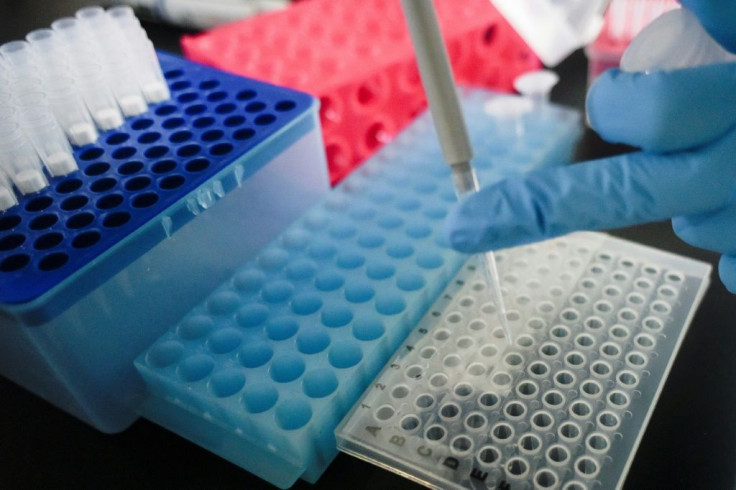Coronavirus Vaccine: US To Pay $1.2B For 300 Million Doses Of Experimental COVID-19 Vaccines

KEY POINTS
- The candidate COVID-19 vaccine, AZD1222, is being developed by AstraZeneca
- The U.S. has invested $1.2 billion to fast tracking advanced clinical studies, manufacturing and development of AZD1222
- AstraZeneca said it's working to secure total manufacturing capacity for one billion doses
Desperate times means spending a lot of money and hoping for the best. The United States has agreed to pay $1.2 billion for a candidate vaccine still under development that carries with it the chance it might turn out to be a dud.
The United States is willing to pay $1.2 billion for 300 million doses of an experimental COVID-19 vaccine named "AZD1222" being developed and tested by AstraZeneca, a British multinational pharmaceutical and biopharmaceutical company based in Cambridge, England. AstraZeneca said it's working to secure total manufacturing capacity for one billion doses of its experimental vaccine.
The United States' $1.2 billion investment will go to fast tracking advanced clinical studies, manufacturing and development of AZD1222. In charge of the U.S. end of the deal is the Biomedical Advanced Research and Development Authority (BARDA), which signed the agreement on behalf of the federal government.
BARDA is an office under the U.S. Department of Health and Human Services (HHS). It's responsible for the procurement and development of countermeasures against bioterrorism, including chemical, biological, radiological and nuclear (CBRN) threats. It's also responsible for countermeasures against epidemics, pandemic influenza and emerging diseases.
AZD1222 isn't ready for use on people, however. It's still being developed by the University of Oxford’s Jenner Institute. The experimental coronavirus vaccine, which is made from a weakened version of a chimp adenovirus, is licensed to AstraZeneca.
"AstraZeneca recognizes that the vaccine may not work but is committed to progressing the clinical program with speed and scaling up manufacturing at risk," said the company in a statement.
“At risk” means the company doesn't definitely know AZD1222 works or can be safely administered. If the vaccine fails, it will be destroyed.
On the other hand, the vaccine is expected to be delivered as early as October. These production batches will be stored until the vaccine completes clinical trials that will ascertain its safety and effectiveness in protecting against COVID-19 infection.
As it now stands, AZD1222 is in early clinical trials. Apart from testing the vaccine for safety, the trials will determine if it produces antibodies against SARS-CoV-2, the virus that causes COVID-19. It will also determine if AZD1222 protects immunized people from becoming infected with SARS-CoV-2 again. The early clinical trials began in England on April 23.
Phase 3 clinical studies will begin this summer in both the United Kingdom and the U.S. The U.S. trials will involve some 30,000 volunteers, according to HHS. The deal with AstraZeneca is part of the federal government’s Operation Warp Speed.
© Copyright IBTimes 2025. All rights reserved.





















